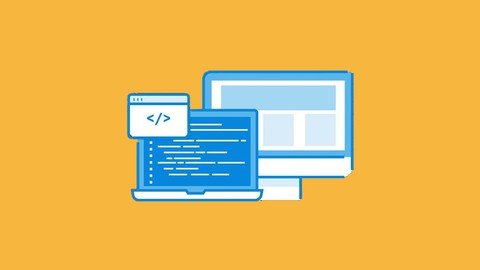
Published 08/2022
Genre: eLearning | MP4 | Video: h264, 1280x720 | Audio: AAC, 44.1 KHz
Language: English | Size: 1.16 GB | Duration: 29 lectures • 3h 17m
This course will teach you how to design, implement, and troubleshoot enterprise network infrastructure.
What you'll learn
Gain an in-depth understanding of networking using routers and switches
Understand the benefits of creating an optimal network
Understand layer 2 technology and its various configurations and connections
Create and implement IP schemes in an enterprise network
Configure default, static, and dynamic routing
Design and implement virtual local area networks (VLANs)
Design and implement subnetted IPv4 and IPv6 addressing schemes
Administer dynamic routing protocols, network security, and automation
Troubleshoot issues and keep your network secure
Get to grips with various IP services that are essential to every network
Study the importance of VLANs for security and optimizing the bandwidth
Discover how to troubleshoot networking devices
Requirements
A PC or Mac
Internet Access
Description
Welcome to this course. In the dynamic technology landscape, staying on top of the latest technology trends is a must, especially if you want to build a career in network administration. Most enterprises use Cisco networking equipment to design and implement their networks. However, some networks outperform networks in other enterprises in terms of performance and meeting new business demands, because they were designed with a visionary approach. Learning Cisco Networking Architecture will validate your knowledge of networking concepts, and this course will help you to do just that. The course begins with an introduction to the study plan and explains how Cisco CCNA will validate your skills and take your career to the next level. You will then set up the lab, install Cisco Packet Tracer, and learn about the TCP/IP stack and the different OSI layers. As you advance, you will be taken through all the different OSI layers, including OSI layer 1 – the Physical layer, and OSI layer 2 – the Data-Link layer, and get to grips with subnetting.
In this course, you'll learn
Gain an in-depth understanding of networking using routers and switches
Understand the benefits of creating an optimal network
Understand layer 2 technology and its various configurations and connections
Create and implement IP schemes in an enterprise network
Configure default, static, and dynamic routing
Design and implement virtual local area networks (VLANs)
Design and implement subnetted IPv4 and IPv6 addressing schemes
Administer dynamic routing protocols, network security, and automation
Troubleshoot issues and keep your network secure
Get to grips with various IP services that are essential to every network
Study the importance of VLANs for security and optimizing the bandwidth
Discover how to troubleshoot networking devices
Who this course is for
Network Engineers
Security Administrators
Anyone interested in Cisco Networking
Homepage
https://www.udemy.com/course/cisco-ccna-networking-architecture-patterns/
https://rapidgator.net/file/4aa4d950a54d77b6857cdc4f177ad796/bxxer.Cisco.CCNA.Networking.Architecture.Patterns.rar.html

https://uploadgig.com/file/download/aBbDfe7683e051cC/bxxer.Cisco.CCNA.Networking.Architecture.Patterns.rar

https://nitroflare.com/view/0C8A46AA7C7AB47/bxxer.Cisco.CCNA.Networking.Architecture.Patterns.rar
Links are Interchangeable - No Password - Single Extraction
